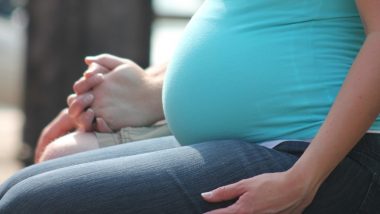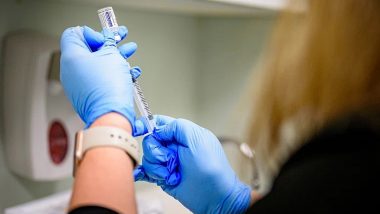Moscow, December 30: EpiVacCorona, Russia's potential COVID-19 vaccine, does not harm the health of the embryo, the national consumer rights watchdog, Rospotrebnadzor, has said. The conclusion is based on preclinical studies. COVID-19 vaccine EpiVacCorona is developed by the Russian State Research Center of Virology and Biotechnology Vector. It is the second vaccine registered by Russia. COVID-19 Vaccine Latest News: 50,000 Doses of Russia's EpiVacCorona Likely to be Available by 2020 End.
The Russian State Research Center of Virology and Biotechnology Vector completed preclinical studies of the reproductive toxicity of COVID-19 vaccine EpiVacCorona on December 15, according to Rospotrebnadzor. The vaccine, which is currently in phase 3 post-registration clinical trials, was tested on adult male and female rats, including pregnant ones. COVID-19 Vaccine EpiVacCorona: Key Things to Know About Russia's Second Anti-Coronavirus Drug.
"Based on the data obtained, it was concluded that the EpiVacCorona vaccine does not have embryotoxic properties and does not affect the generative function," Rospotrebnadzor said. The vaccine did not affect the survival rate of the offspring, and did not cause any disturbances in their physical development, the watchdog added.
Russia had registered EpiVacCorona in October. It is a peptide synthetic vaccine based on a recombinant virus. A peptide synthetic vaccine mimics certain parts of the pathogen they are designed to protect from, compelling the human body to produce antigens capable of fighting the original virus.
According to the Vector, the vaccine stimulates the intracellular synthesis of coronavirus’s parts. It forces a body to generate an immune response, both on a cellular level and by releasing antibodies into a person's blood and lymph.
(The above story first appeared on LatestLY on Dec 30, 2020 09:20 PM IST. For more news and updates on politics, world, sports, entertainment and lifestyle, log on to our website latestly.com).













 Quickly
Quickly




















